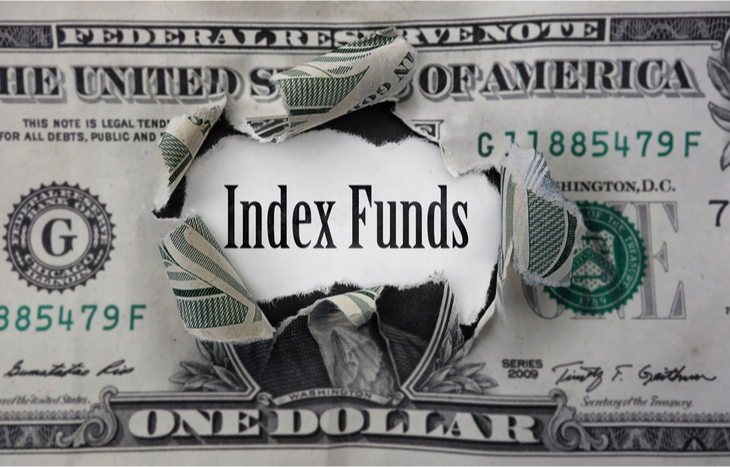mailforum.ru
Categories
How To Shut Down Your Business

Timeline for Closing Down Your Business · Vote to dissolve your entity. · Put a dissolution team together. · List business assets and take inventory. · Set a. Notify the Taxation and Revenue Department of your close-of-business date by logging in to your administrator account online profile in the TAP system. A Step-by-step Plan to Help Close Your Business Down the Right Way · First steps · Sell assets and pay debts · Cancel on-going agreements · File final taxes. Business Close a Business. How to Dissolve a Business. A corporation or Select Your Business Structure · Financial Resources · Government Requirements. Closing A Business Without Bankruptcy · Winding up without bankruptcy · Identify the assets · List debts for which officers are personally liable · Segregate assets. If you've decided to close down your business rather than selling it or passing it down to the next generation, here are some things you should consider doing. Close your business · 1. Review your finances · 2. Notify your employees and contractors · 3. Notify your customers · 4. Notify your suppliers · 5. End your lease. apply to get your company struck off the Companies Register · arrange creditors' voluntary liquidation. You can get professional advice from a solicitor or. If you've exhausted your financial resources, scaling down isn't feasible, or you're simply ready to pursue a different business path, it may be time to. Timeline for Closing Down Your Business · Vote to dissolve your entity. · Put a dissolution team together. · List business assets and take inventory. · Set a. Notify the Taxation and Revenue Department of your close-of-business date by logging in to your administrator account online profile in the TAP system. A Step-by-step Plan to Help Close Your Business Down the Right Way · First steps · Sell assets and pay debts · Cancel on-going agreements · File final taxes. Business Close a Business. How to Dissolve a Business. A corporation or Select Your Business Structure · Financial Resources · Government Requirements. Closing A Business Without Bankruptcy · Winding up without bankruptcy · Identify the assets · List debts for which officers are personally liable · Segregate assets. If you've decided to close down your business rather than selling it or passing it down to the next generation, here are some things you should consider doing. Close your business · 1. Review your finances · 2. Notify your employees and contractors · 3. Notify your customers · 4. Notify your suppliers · 5. End your lease. apply to get your company struck off the Companies Register · arrange creditors' voluntary liquidation. You can get professional advice from a solicitor or. If you've exhausted your financial resources, scaling down isn't feasible, or you're simply ready to pursue a different business path, it may be time to.
Resolve Financial Obligations Notify all lenders and creditors of your plans to dissolve the business and settle remaining debt. If you are unable to pay your. SUBMIT YOUR LOCAL FILINGS · Please Note That Closing Your Business In Inbiz Will Only End Your Obligations To The Secretary Of State's Office. You Are. When you close or sell your business, be sure to close your business tax account with the Vermont Department of Taxes. Otherwise, the Department may think you. 1. Review your decision to close your business · 2. Take care of your staff · 3. Communicate the closure · 4. Bankruptcy and liquidation · 5. Settle your legal. Create and follow a closing plan that offers the most protection possible to your personal assets, your credit, and your reputation in the community. Do you want to close down your business? You can terminate your company in several different ways and how you do it depends on the type of company you have. When you decide to sell, close, or discontinue business operations within Los Angeles, you must cancel your City of Los Angeles' Tax Registration Certificate by. Your options are somewhat state dependent. Obviously the focus should be on personal liability, which is likely the tax and SBA debt. If you. Tax debt is especially serious for those who own their own business. Threats from the IRS can be devastating. Under the law the shareholders must vote to wind down the business. However, you cannot simply circulate an email and get everyone's responses. Even if you have. You'll need sound counsel to understand your obligations regarding business closure notifications, contracts, and debts. If you don't have an attorney, ask your. Sign them up for every junk mail company you can find LOL Enter their phone number in a few hundred telemarketing contests. Put their e mail. Can You Shut Down Your Company Anytime?. Business owners can close their businesses, whether temporarily or permanently, at any time they choose. To legally close a corporation or LLC, the company must file Articles of Dissolution with the state of incorporation. Learn more. On the “Summary” page of the entity, scroll down and select File a form. When on the “Documents Available for Filing” page, select Dissolve or Withdrawal. Closing a company When shutting down a company: You'll also need to apply to be taken off the Companies Register. But first, check your company details are. 3. Exploring Alternatives Before Closing · Consider Selling: Look into selling your company or its assets. · Return Capital: If possible. A clarion call to shut down the business school! Business schools are institutions which, a decade after the financial crash, continue to act as loudspeakers. If you have closed your business, will be closing it in the near future, or are closing one of your business locations, let us know online through your. The easiest way to close down your business may be to prepare a declaration of dissolution, in which all the owners state that all debts have been paid.
Index Funds Safe Investment

Thanks to their low costs and ease of use, exchange-traded funds are becoming more popular than ever for building diversified portfolios. But for many investors. Retirement Plan Mutual Fund ; MoA Small Cap Equity Index Fund, 07/02/, %, %, %. Index funds don't change their stock or bond holdings as often as actively managed funds. This often results in fewer taxable capital gains distributions from. But investing in index funds has its limitations. Get your money out of weapon stocks. Weapon Free Funds is a search platform that informs and empowers everyday investors. While index funds are free from the fund manager bias, they are still vulnerable to the risk of tracking error. It is the extent to which the index fund does. If your investment horizon in less than 5 years, yes index funds are very risky. But as your investment duration increases, risk decreases. S&P index funds are among the most popular investment choices in the U.S. thanks to their low cost, minimal turnover rate, simplicity and performance. An index mutual fund or ETF (exchange-traded fund) tracks the performance of a specific market benchmark—or "index," like the popular S&P Index—as closely. Thanks to their low costs and ease of use, exchange-traded funds are becoming more popular than ever for building diversified portfolios. But for many investors. Retirement Plan Mutual Fund ; MoA Small Cap Equity Index Fund, 07/02/, %, %, %. Index funds don't change their stock or bond holdings as often as actively managed funds. This often results in fewer taxable capital gains distributions from. But investing in index funds has its limitations. Get your money out of weapon stocks. Weapon Free Funds is a search platform that informs and empowers everyday investors. While index funds are free from the fund manager bias, they are still vulnerable to the risk of tracking error. It is the extent to which the index fund does. If your investment horizon in less than 5 years, yes index funds are very risky. But as your investment duration increases, risk decreases. S&P index funds are among the most popular investment choices in the U.S. thanks to their low cost, minimal turnover rate, simplicity and performance. An index mutual fund or ETF (exchange-traded fund) tracks the performance of a specific market benchmark—or "index," like the popular S&P Index—as closely.
An “index fund” is a type of mutual fund or exchange-traded fund that seeks to track the returns of a market index. 1. Certificates of deposit (CDs) · 2. Money market funds · 3. Treasury securities · 4. Agency bonds · 5. Bond mutual funds and exchange-traded funds · 6. Deferred. Vanguard's First Index Investment Trust (known today as the Vanguard Index Fund) safe bet, the old standby, a choice so sound your employer makes it. An investment in the fund is not a bank deposit. It is not insured or guaranteed by the FDIC or any other government agency. It is not a complete investment. Like any investment, index funds involve risk. An index fund will be subject to the same general risks as the securities in the index it tracks. The fund may. The first retail S&P Index-tracking fund was founded in The chart shows how much a hypothetical $10, investment in the five equity-focused American. Many new investors start out investing with mutual funds and exchange-traded funds (ETFs) since they require smaller investment amounts to create a diversified. Index investing is a form of passive investing Index investors don't need to actively manage the stocks and bonds investment as closely since the fund is just. During a market rally, index funds returns are good usually. However, it is usually recommended to switch your investments to actively managed equity funds. Passively managed investment funds that track market indexes have seen significant fund inflows over the past decade. These indexes, from firms like from S&P. Index funds, also known as passively managed funds, offer investors broad exposure to a specific stock market or fixed income market by closely tracking the. An “index fund” is a type of mutual fund or exchange-traded fund that seeks to track the returns of a market index. The S&P Index, the Russell ETFs are typically free to buy when using a top-quality online broker (like Questrade), while mutual funds usually have a minimum investment with monthly. While index funds are free from the fund manager bias, they are still vulnerable to the risk of tracking error. It is the extent to which the index fund does. Index funds are mutual funds that track the performance of a specific index, such as the S&P ® Index. They offer long-term growth potential, and reduced risk. Index funds can invest heavily in stocks, and almost any investment in stocks is risky. Stocks, also known as equities, are generally considered risky by. What is index investing? Index products, such as an index fund or ETF, do not enlist a fund manager to actively select investments; instead, the vehicle buys a. Who are mutual funds for? Investors looking for a convenient, cost-effective way to diversify their investments across multiple securities with the confidence. Index funds provide the benefit of diversification, and they tend to be cost effective and tax efficient. Investing in index mutual funds and index ETFs allows. Index funds provide the benefit of diversification, and they tend to be cost effective and tax efficient. Investing in index mutual funds and index ETFs allows.